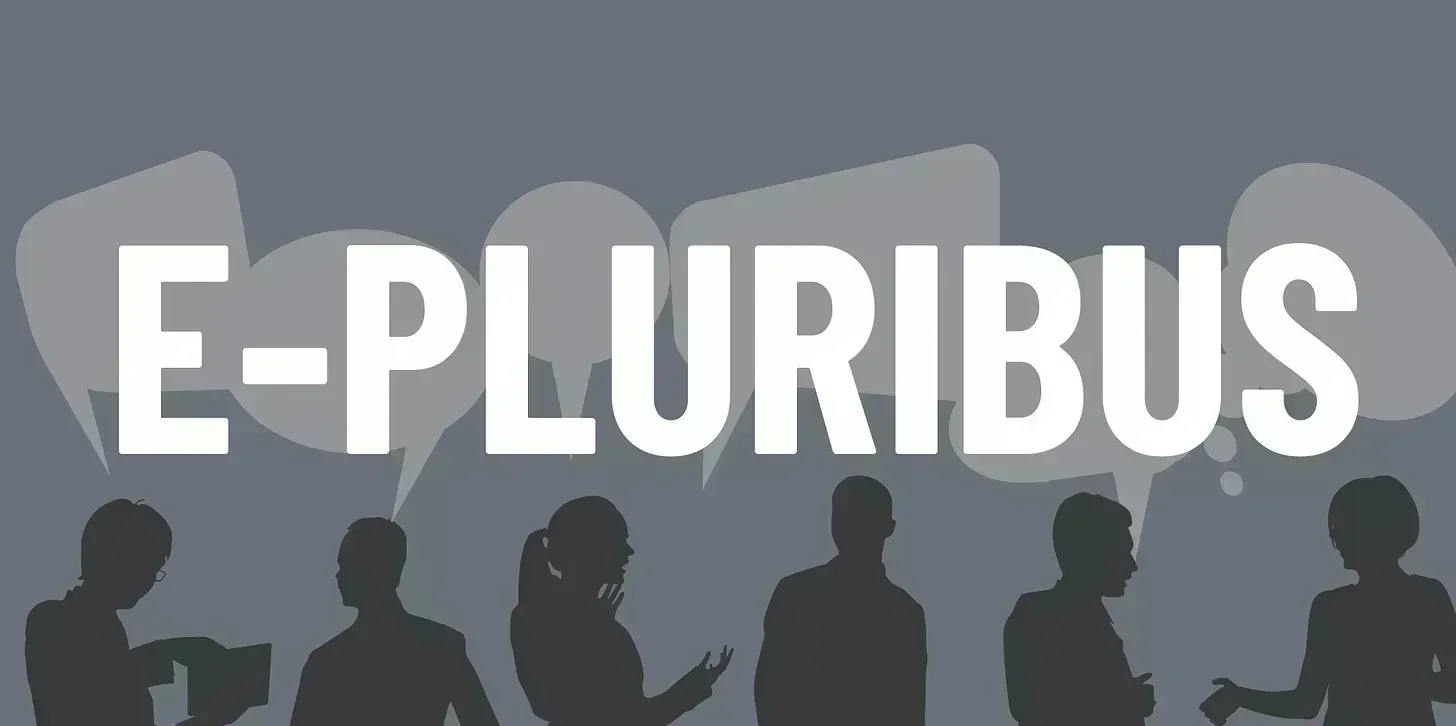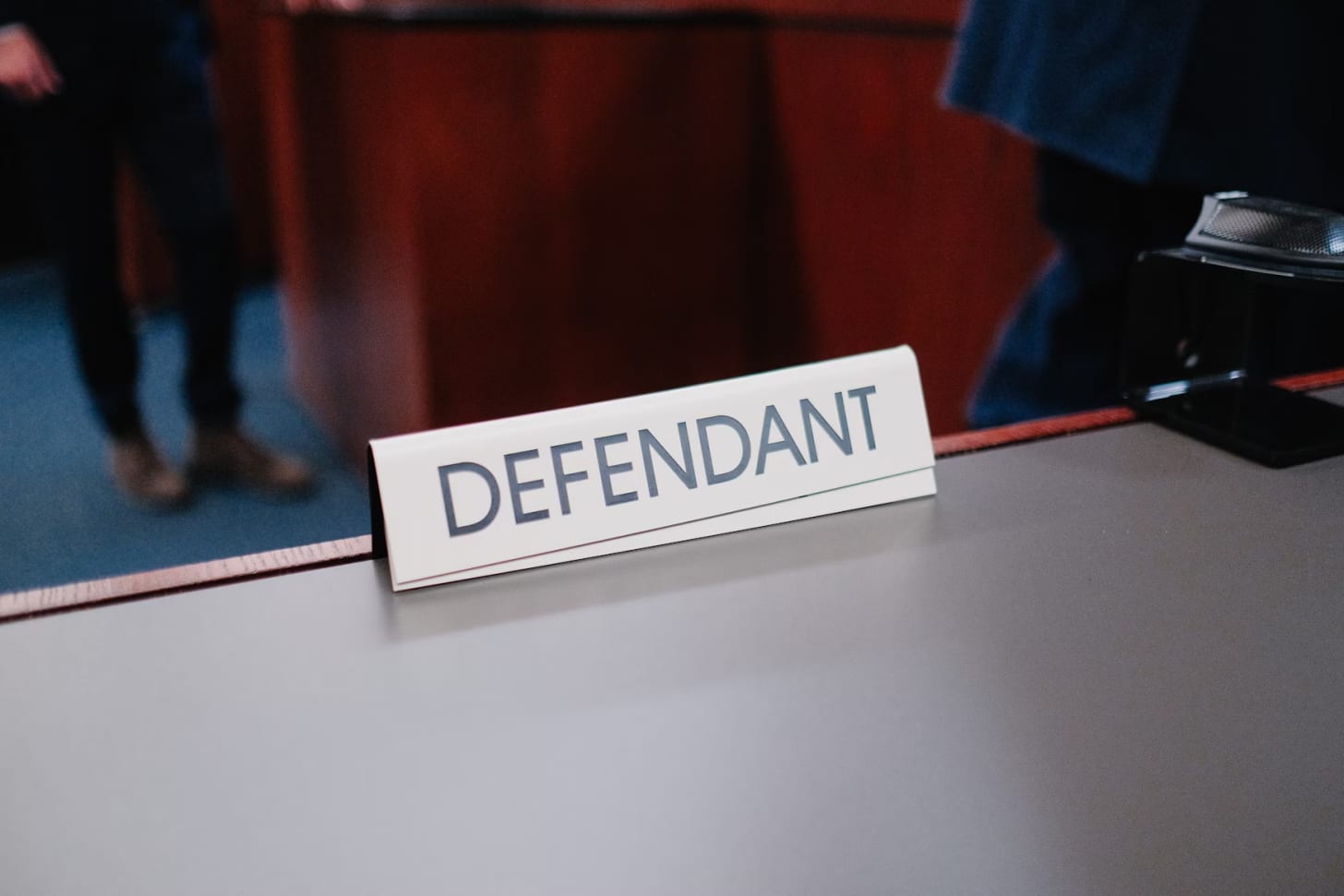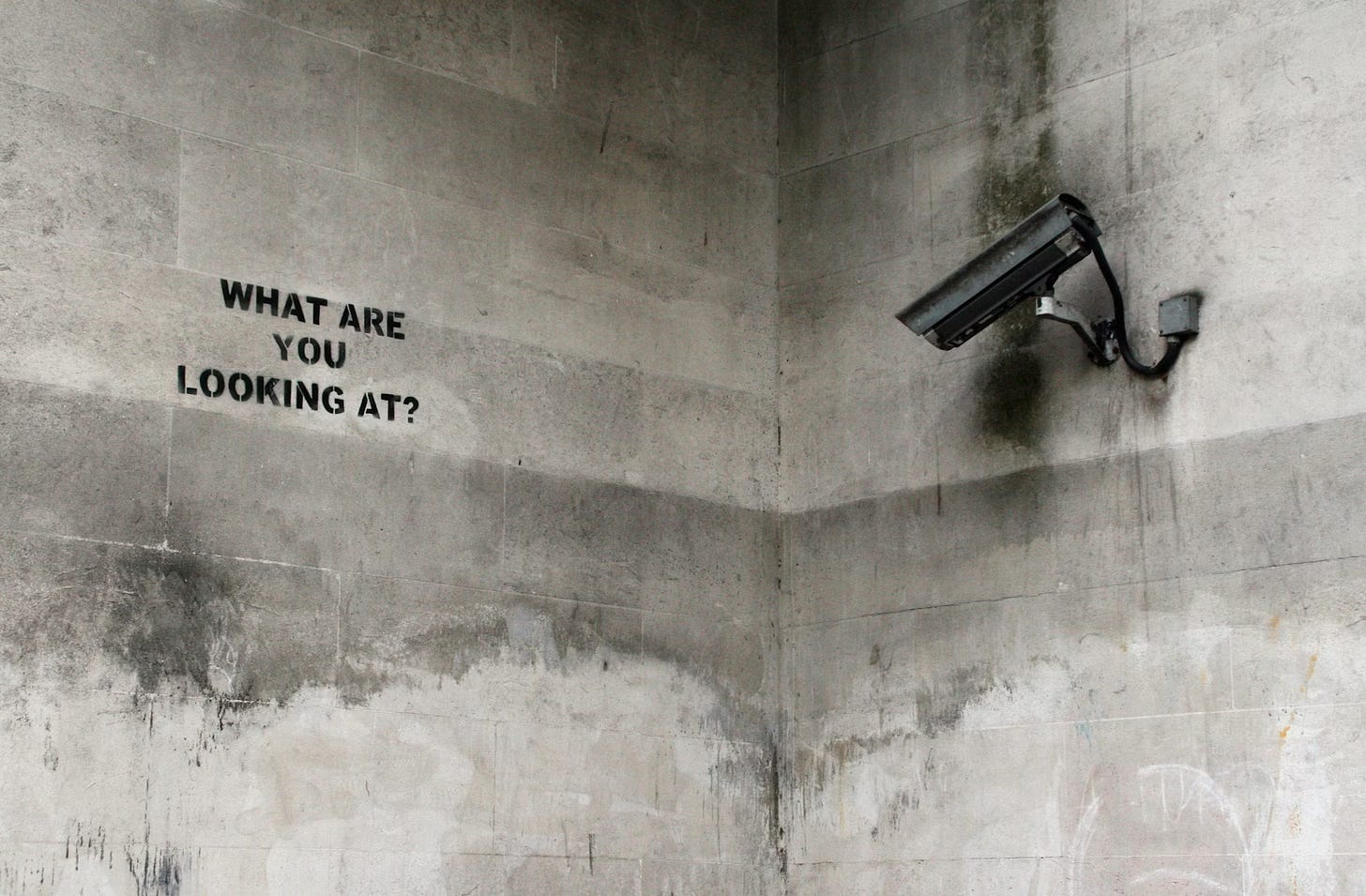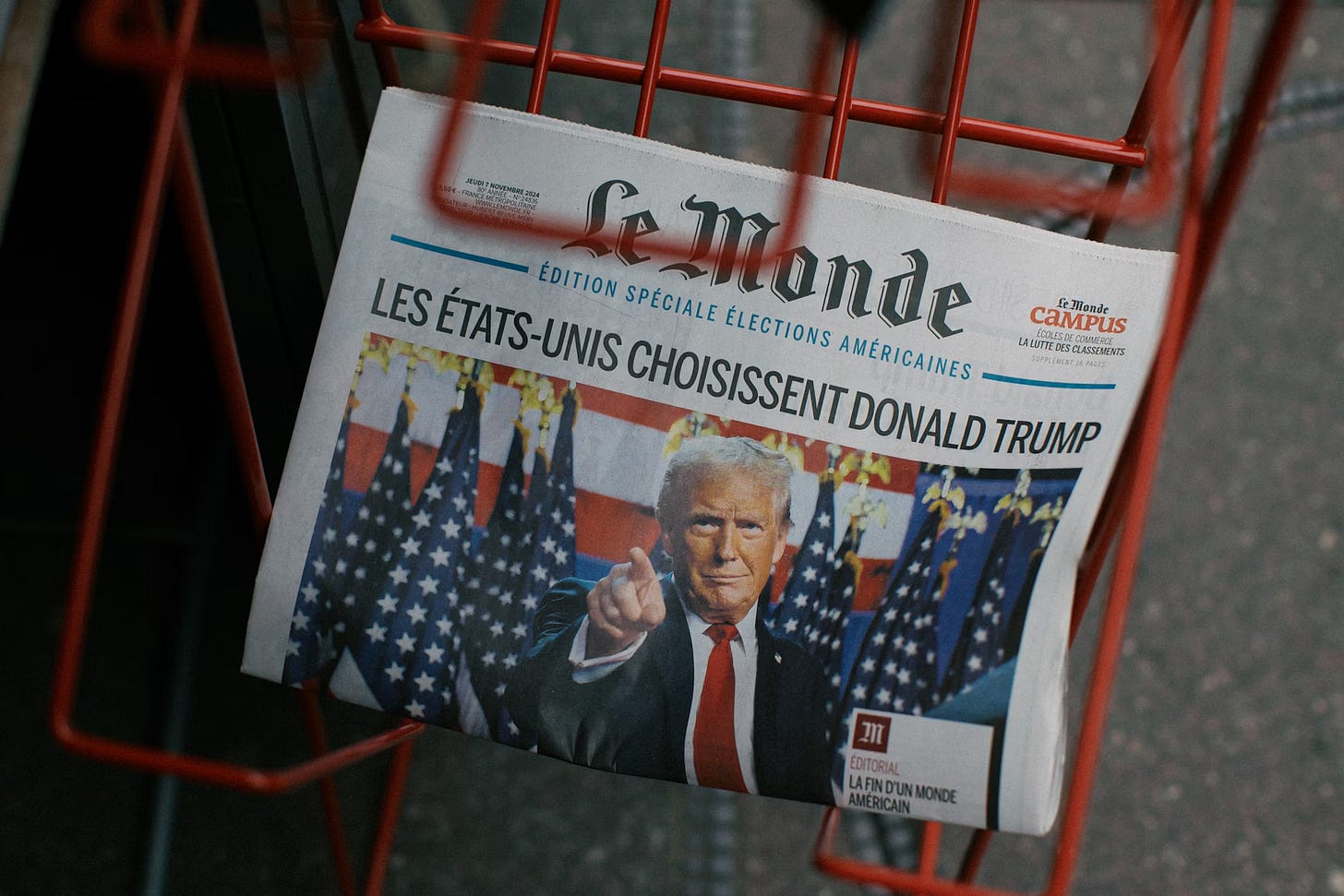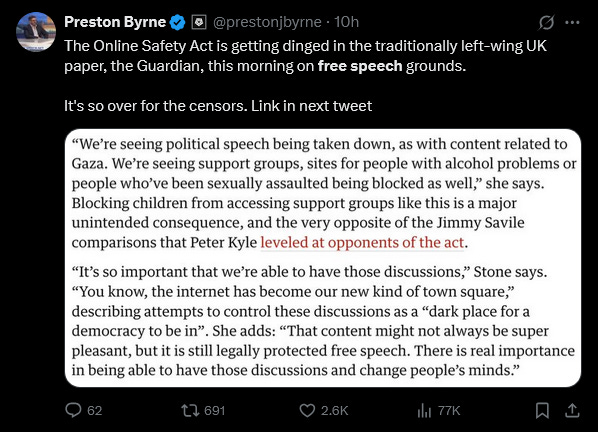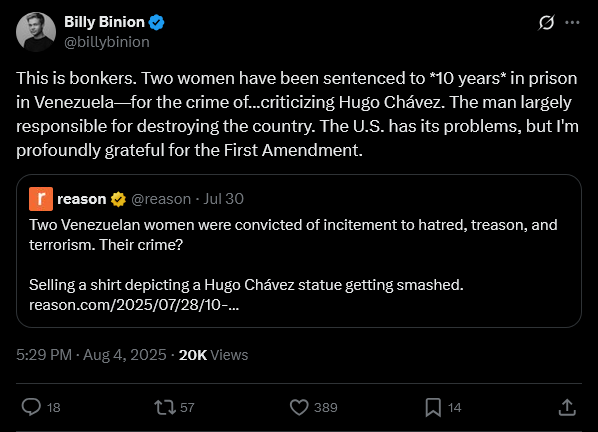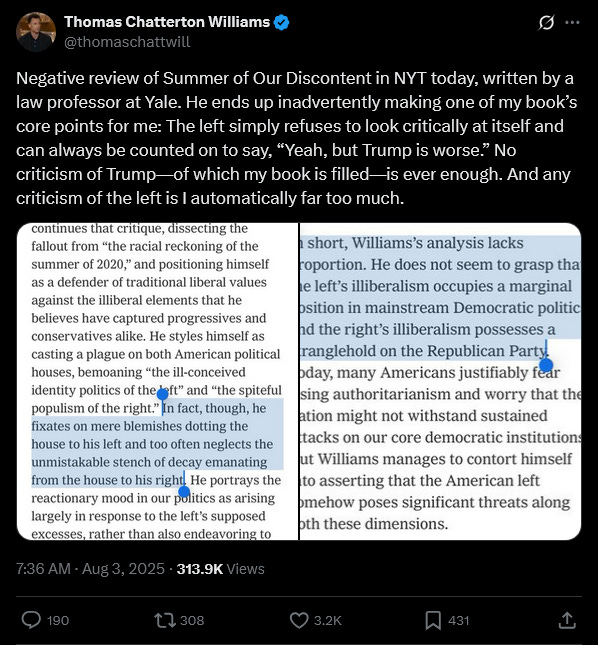E-Pluribus |August 5, 2025
Misgender someone, pay 40K in fines? Alabama's porn tax. Trump takes aim at EU censorship
A round-up of the latest and best insight on the rise of illiberalism in the public discourse:
Stephen Rice: Sall Grover should pay big damages for ‘misgendering’ trans woman Roxanne Tickle in interviews, court told
A court in Australia has been asked to punish Sall Grover, founder of the female-only social media app Giggle, for “misgendering” Roxanne Tickle, who identifies as a woman. For obvious reasons the case “could have far-reaching implications for free speech,” The Australian reports:
Giggle app founder Sall Grover should have to pay hefty damages to trans woman Roxanne Tickle because she “misgendered her” in media interviews, Ms Tickle’s legal team has pleaded in a bombshell submission to the Federal Court.
In a submission which, if accepted, would have far-reaching implications for free speech, Ms Tickle’s lawyers argued that Ms Grover’s description of Ms Tickle as a man in at least 50 interviews should make her liable for “significant” aggravated damages.
Ms Grover is appealing a decision by judge Robert Bromwich that she indirectly discriminated against Ms Tickle by rejecting her from the Giggle for Girls female-only networking because she appeared to be a man.
Justice Bromwich had awarded $10,000 damages because Ms Grover had laughed in court at a satirical piece of merchandise – a scented candle – which appeared to mock Ms Tickle.
Ms Tickle is also appealing parts of Justice Bromwich’s decision, asking for a finding of direct rather than indirect discrimination and that the damages be increased to at least $40,000. Ms Tickle had sought $200,000 in damages at the previous trial.
Elizabeth Nolan Brown: Alabama's Porn Tax Starts Soon
Alabama is poised to enact a 10 percent tax on the gross profits of any website publishing pornographic content. At Reason, Elizabeth Nolan Brown explains that the tax is part of a broader anti-porn effort in the state—one that may run afoul of the First Amendment:
The tax was enacted as part of a larger anti-porn effort known as House Bill 164. "Pornography is creating a public health crisis," the measure's findings section claimed.
Alabama isn't exactly a porn industry hub, so the tax might seem at first glance like more of a P.R. effort than anything else.
But the way the law is written, it could have far-reaching implications … Is the Porn Tax Constitutional?
The porn tax portion of H.B. 164 is slated to take effect on September 1.
"Before the ruling in FSC v. Paxton, I would have said that the Alabama law is a clear example of selectively taxing adult companies because of their content, and that even a conservative court would strike it down as unconstitutional," Alison Boden, executive director of the Free Speech Coalition, told XBIZ. "In a post-Paxton world where the meaning of the First Amendment is seemingly up for grabs, it's unclear." (In Paxton, decided earlier this summer, the U.S. Supreme Court said that states may demand that porn sites verify users' ages.
On one level, "sin taxes" of this sort are nothing new—governments love to levy special taxes on products they want to discourage, as we've seen with cigarettes, alcohol, marijuana, and so on. But pornography is a form of legal speech, and that renders sin taxes on porn something a little different.
Attorney Lawrence Walters told XBIZ the tax "may constitute an unconstitutional content-based burden on speech," but he also pointed out that so far, nothing is preventing its enforcement.
Emma Colton: Trump's full-court press against 'Orwellian' European censorship intensifies amid US efforts to unleash AI
As the US ramps up its investment in artificial intelligence (AI), the Trump Administration is putting pressure on the European Union and UK to rollback their expanding restrictions on free speech. Fox News has the story:
The Trump administration has been on a monthslong campaign railing against what it says are draconian censorship regulations in Europe that have not only stifled free speech, but have also served as another roadblock amid the artificial intelligence evolution.
"In Europe, thousands are being convicted for the crime of criticizing their own governments," the State Department recently posted to X, accompanied by a graphic slamming Europe's Digital Services Act (DSA). "This Orwellian message won't fool the United States. Censorship is not freedom."
The EU adopted the DSA in 2022 to regulate online platforms such as social networks, content-sharing platforms and app stores, and is intended to "prevent illegal and harmful activities online and the spread of disinformation." The law has since faced opposition from the Trump administration amid its free speech promotion on the global stage.
The State Department's X post follows a monthslong campaign of Trump officials lambasting Europe for its strict rules that limit free speech – most notably online and in the world of AI and evolving tech.
Fox News Digital spoke with Darren Beattie, acting under secretary of state for public diplomacy and public affairs, who explained that as the Trump administration takes a hatchet to restrictions and censorship – most notably online and left over from the Biden era – Europe has moved to intensify its censorship with laws such as DSA.
Around X
Even the UK’s historically left-wing papers are fed up with their government’s recent internet censorship streak.
Billy Binion is proud to be an American. Sure, we have our problems, he concedes, but punishing people for selling t-shirts isn’t one of them.
How do you know the New York Times isn’t bothered by illiberalism? Thomas Chatterton Williams has the answer.



